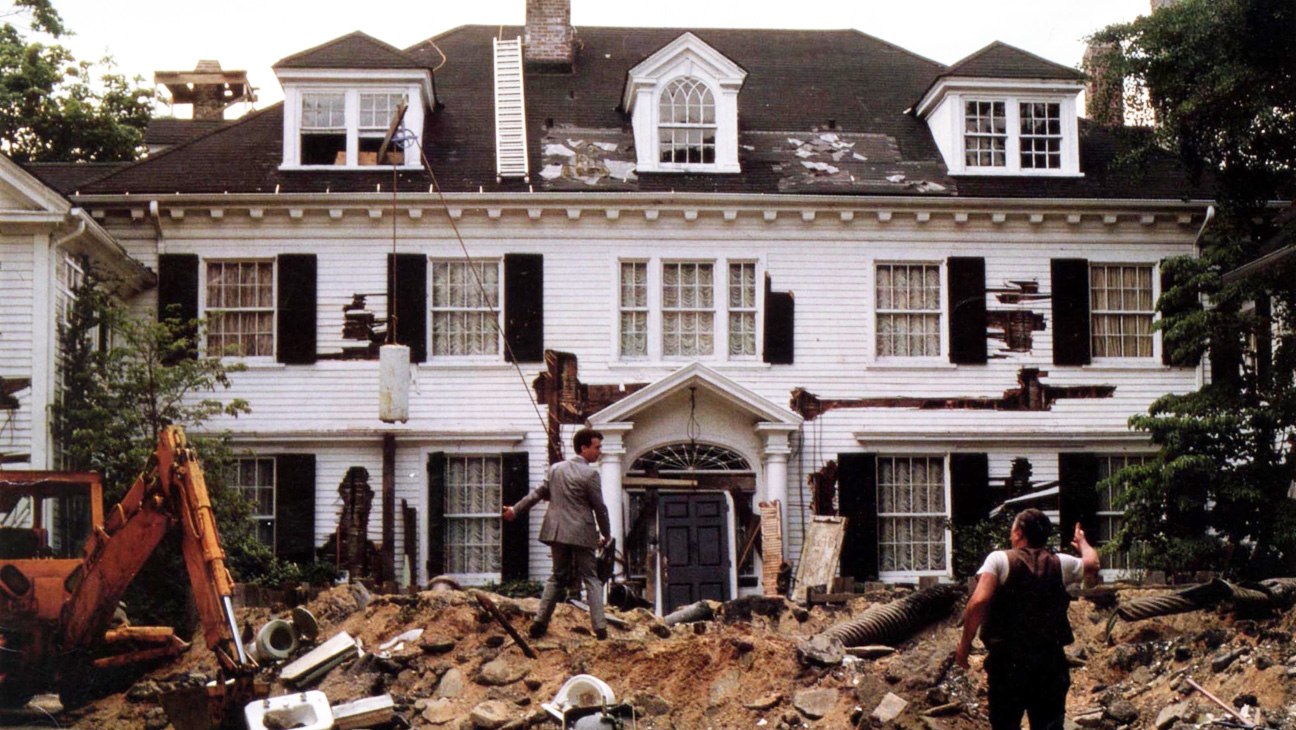Here lies Walter Fielding. He bought a house, and it killed him.
In the classic Tom Hanks movie, the Money Pit, Hanks’ character Walter and his wife buy a dilapidated mansion with the plan to renovate the property and move into their dream home. After an abundance of escalating setbacks, the renovation nearly ruins their marriage and leaves them homeless. Indeed, the above quote nicely sums up how a lot of people feel about buying a fixer-upper. Months of stress and hard work could grind to a halt with little to show for all the work.
But with the right amount of planning, a decent budget, and a reputable contractor, a fixer-upper can be a viable option for many potential homeowners.
According to real estate professionals like Richard Silver and Jim Burtnick, whether you’re planning on selling the property in the future or remaining there to live, if you’ve got the time and money, a fixer-upper can be a great way to get more value for your cash.
The Right Kind Of Person
It’s difficult to say just how many fixer uppers are on the market at any given time. After all, the definition of what needs updating can vary widely depending on the buyer and seller, but most people agree there’s value to be found out there.
Still, many real estate professionals warn that it takes a special type of person to take on such a project. According to Jim Burtnick, Broker, SVP of Sales at Sotheby’s International Realty Canada, the fixer-upper in this market is where the oportunity lies:
The fact of today’s society is that people are so busy with their work life, their family life, that not a lot of people have the stomach or the inclination to take on a fixer-upper project. They’re just too busy. So there is less demand for those types of properties. So with less demand obviously you get it at a better price.
A lower price isn’t the only reason for homes that may require some extra attention. As Richard Silver of Sotheby’s International Realty Canada points out, one of the main benefits is that you can customize the building to your standards.
You can change it inside to be very traditional, you can make it very modern, you can put in a brand new kitchen and bathroom and all the things. So there are benefits.
Planning Is Key
If buyers decide to fix up a home, there are a number of things to consider first, depending on what they’re trying to achieve. If the goal is to flip the house, concentrate on areas that are going to add the most value. An updated kitchen will add a lot more value than a new HVAC unit, according to Burtnick.
Burtnick says the first thing owners should do is sit down and determine the scope of the work.
Are they renovating everything or just the bathrooms? Which items will require professionals? Kitchens and bathrooms usually involve specific expertise like plumbing and electrical work, but if you’re putting up a fence or deck, that’s probably something you can do without consulting a professional.
Make sure to set a budget. Burtnick says he’s seen too many people blow through their money and over-capitalize the property. Otherwise, you may end up with an aesthetically lopsided home.
You want to have a consistent type of finish throughout the house so there’s no sense in having a brand new, ultra-modern kitchen and a bathroom with old vinyl flooring and fixtures. You want to make sure you have a consistent feel throughout the house.
Before beginning the renovation, make sure to look into building permits as well. In the City of Toronto, it’s the homeowners’ responsibility to make sure they’re following all the applicable building codes. All of that information can be found on the City of Toronto website.
The Right Person For The Job
There are a lot of risks that go along with fixing up a home. According to Silver, one of the best ways to mitigate that risk is by finding a decent contractor:
I think there’s a lot of people out there who could take advantage of you, so you really have to know the marketplace. Or you have to find somebody you can trust.
One issue now though, according to Burtnick, is that the best contractors are often booked as much as a year in advance. In Toronto, the renovation business has proven to be a strong marketplace so there are more new entrants vying for business. That can make it difficult to judge their skill and experience level.
To do this properly, you’re going to spend a lot of time interviewing contractors.
It’s up to the homeowner to do their due diligence, according to Burtnick. They should make sure to get referrals from friends who have gone through renovations, obtain references, and make sure the contractor is properly insured.
Also, make sure contractors aren’t subcontracting out the work, according to Burtnick. While it’s not illegal to farm out jobs to other workers, it can create major headaches for the homeowner.
What you’ll get is one contractor coming into bid on the business, but he doesn’t indicate to you that he’s just winning your business and sub-parceling it off to other contractors. You want a contractor who is responsible for all of the job and has direct control over that. When they start subcontracting it out they’ve lost control of it.
Contract With the Contractor
Making sure there’s a strong contract in place will help things run smoothly.
Outline the work that needs to be done, says Burtnick. That may include sketches, blueprints, or CAD drawings. It should include an estimate for the entire project, a payment schedule, and a clause to cover any extra expenses.
If you’re going through the project and decide you want to use granite instead of the ceramic tile that was agreed upon that, you’ve got a clause covering the extra costs that are bound to come up.
The contract should include the full legal name of the contractor’s company, their business address, HST registration number, phone number, and City of Toronto contractor license number. The homeowners’ full name and the job site address should all be included.
Burtnick says you always want to have an estimated start and finish date within the contract as well. But don’t worry if those move around. In general, he says double the amount of time you think it will take you to finish a job.
Those have to be somewhat flexible because things come up such as weather. But just a general guideline is important.
Prepare For Stress
Both Burtnick and Silver warn that renovations aren’t for the weak-willed. They take a lot of patience and planning. If not dealt with properly, they can be detrimental to relationships and even end marriages.

If you don’t want to end up like Walter Fielding, plan ahead and make educated decisions.
Indeed, for many professional couples, a fixer-upper probably doesn’t make sense, says Richard:
If you have a husband and wife and they have a couple children and both work, they’re not going to have the time to do a fixer-upper. It just doesn’t make sense for them to put in the time.
Silver says he has some experience with this, having taken on a similar project himself in the mid-80’s.
I bought from a builder. I made some changes. He started building and I was on that site every day. I became somebody who yells and I never yell. But I learned to yell.
If you’re in the market for a fixer-upper but don’t think you have the stomach for it, Richard says there are other options. A new construction home that hasn’t been built yet isn’t necessarily the same thing, but buyers do have a bit more control over what the home will look like.
But fixing up a house can be nerve-racking, asserts Silver.
You don’t know if you’re doing the right thing, you don’t know what the market wants, and you don’t know if the market’s going to change and you could be caught.
In Toronto’s current housing market, finding good value can be a challenge. Prices continue to rise, properties get smaller, and every day more people are seemingly priced out of the market. For many buyers, a fixer-upper may be the last vestibule of hope for finding property in the city. That is if they can stomach it.
TT00KV







